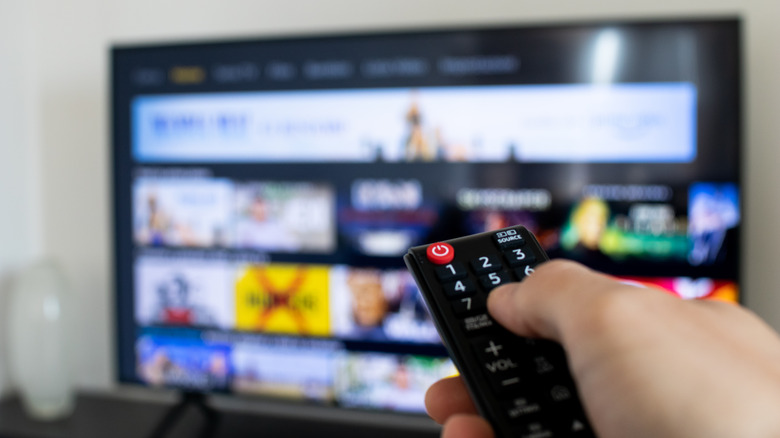Surprising Side Effects Of Binge-Watching TV
In the age of Netflix, Hulu, and other streaming services, it's easier than ever to binge-watch a TV show. Binge-watching refers to watching a particular show for hours on end and losing yourself in the moment. While this can be a nice way to zone out for a few hours, you may be surprised to learn about the side effects of this practice.
Because binge-watching is a relatively new occurrence, there hasn't been extensive research on how it affects our bodies and brains. However, the research that has been conducted doesn't bode well for binge-watchers. According to Verywell Health, a 2020 study by Arizona State University found that the "heaviest screen time watchers" watched an average of 17.5 hours of television per day. The people watching that much television also "reported the least healthful diets and poorest health outcomes in comparison to those who were moderate or light screen users," according to Verywell Health.
While the researchers noted that more data is necessary to draw conclusions about the effects of binge-watching TV, they found a clear correlation in their study between this practice and negative health outcomes.
Binge-watching can have negative mental health outcomes as well
While binge-watching can affect your physical health, it can affect your mental health as well. Dr. John Mayer, Ph.D, a clinical psychologist at Doctor On Demand, explained that binge-watching triggers similar reactions in our brains as other addictive habits (via NBC News). This means that the end of a binge can make us feel let down and even depressed. "We often go into a state of depression because of the loss we are experiencing," Dr. Mayer said. "We call this situational depression because it is stimulated by an identifiable, tangible event. Our brain stimulation is lowered (depressed) such as in other forms of depression."
A 2015 study cited by NBC News found that people who identified as binge-watchers reported feeling more stressed, anxious, and depressed than people who did not watch TV for hours on end. Binge-watching is often an isolating activity and can cut you off from communicating with friends and family. The key to healthy binge-watching is to stay aware of how long you've been watching TV and to cut yourself off before the activity consumes too much of your life.

